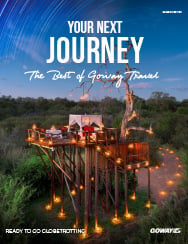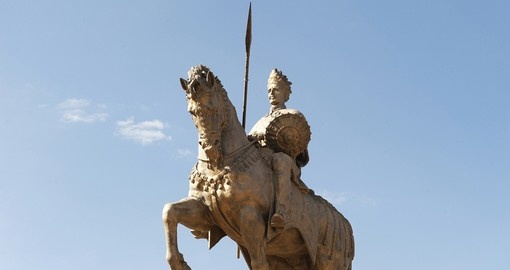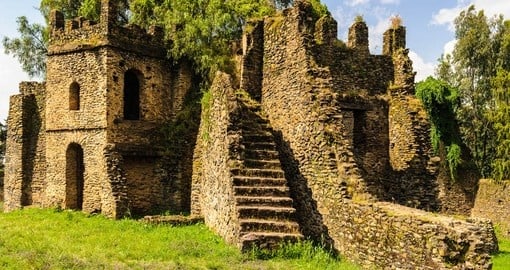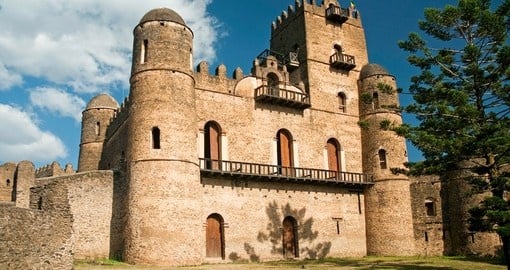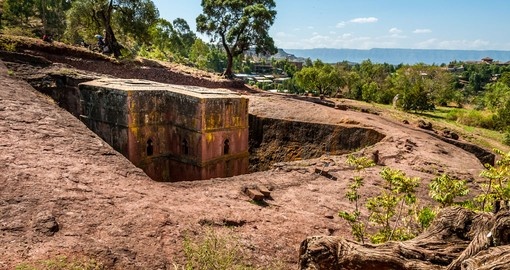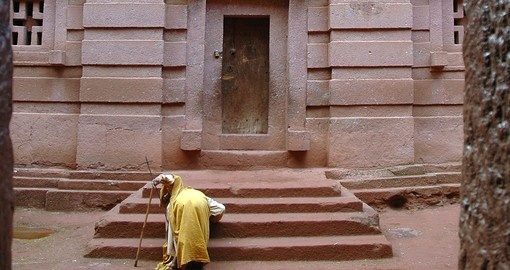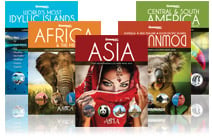Ethiopia History
Ethiopia is the oldest independent country in Africa and one of the world's oldest nations, and has often been called “the Cradle of Humanity”. The reason for this nickname is because of the 1974 discovery of “Lucy” in northern Ethiopia, the oldest and most complete hominid remains ever found. At 3.2 million years old, “Lucy” played a major role in human evolution because she helped to explain when humans began to walk upright.
Due to its strategic location near the coast and close to Egypt, Ethiopia began to emerge as a successful trading spot. This trade allowed for strong connections to be built with southern Arabia resulting in a mixing of Arabian and East African cultures. By 1500 BC, a highly specialized civilization with skills and technologies unique to Africa’s Horn was developed.
By the first century AD, the Aksumite Empire, a mighty kingdom, established itself in what is now northern Ethiopia. Again trade played an important role in the success of the empire as its location served as a commercial crossroads with Egypt. The profits amassed allowed the empire to thrive and grow, stretching at times into Southern Arabia and into the Sudanese Nile Valley. Christianity reached Ethiopia in the fourth century AD, and by the seventh century AD, Islam had also begun to grow in popularity.
Just as trade had been the source of Aksum’s success, its shift away from Ethiopia towards the other side of the Red Sea signalled the end of the Aksumite Empire around 700 AD. This decline marked the beginning of Ethiopia’s “Dark Ages” where little records were kept and the nation stopped minting coins which had previously been a symbol of wealth for the Aksumite Empire.
The sixteenth century saw interest from Europe, particularly from Portugal. The Portuguese wanted to convert the nation to Roman Catholicism as well as strengthen their control over the Indian Ocean. Religious wars between Christians and Muslims followed, with drastic consequences for the country. Many lives were lost and various churches, monasteries, relics and manuscripts were destroyed. By the 1630s, all foreign missionaries were expelled from the country and Ethiopia entered a period of isolation from Europe.
The 1700s were known as the “Era of Princes” because of the abundance of local rulers and the lack of singular, central power. It was not until 1869 that under Emperor Tewodros, many of the princes were united. Tewodros was succeeded by Emperor Yohannes who built upon this unification. Twenty years later, Emperor Menelik II came into power and ruled until his death in 1913, successfully fending off European colonization attempts during the “Scramble for Africa”. In 1896, Ethiopia defeated Italy in the Battle of Adwa. This battle was significant as it was the first time an African nation had defeated a colonial power.
Crowned Emperor in 1930, Haile Selassie embarked on a campaign of modernization, but his rule was characterized by great discontent. Following a worldwide oil crisis in 1973, Haile Selassie was ousted by a military coup in 1974 and was replaced by the “Derg” led by Mengistu Haile Mariam. Ethiopia was enveloped in a reign of terror resulting in a civil war that ended in 1991 when the People’s Revolutionary Democratic Front (EPRDF). In 1995, Meles Zenawi became the country’s first democratically elected prime minister.
Today, Ethiopia has known for its rich and diverse history as well as its diverse landscapes. It is a cultural hotspot with nine UNESCO World Heritage Sites, eight of which are designated for cultural, rather than natural reasons. Amazing historical sites are spread out around the country making it an incredibly unique country to discover.
Get a Trip Quote Order a Brochure
